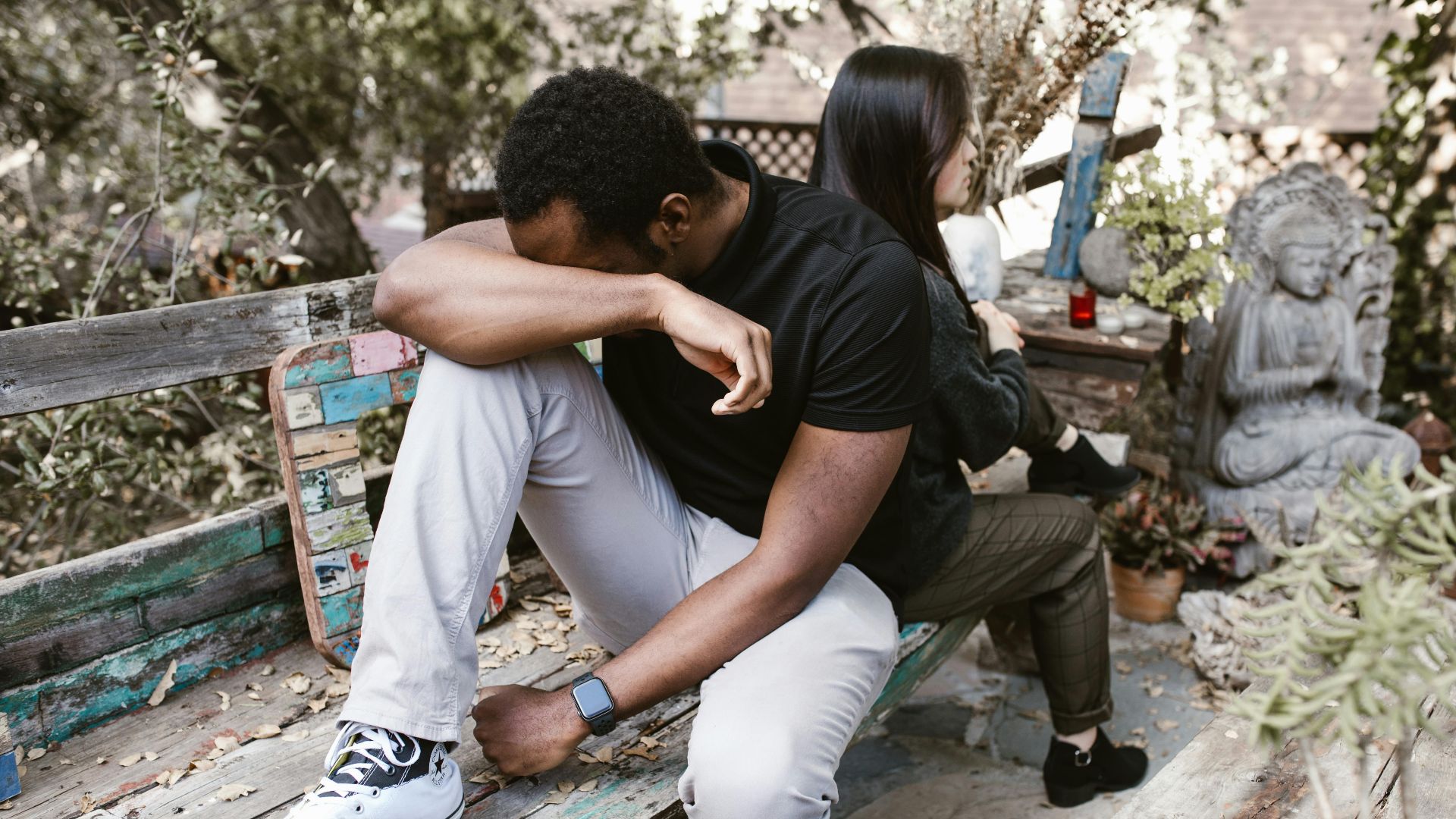It's Not Your Love Life—It's You
Love is hard. You might think your love life is going well until it suddenly isn't, and then you're back at square one. But how often is this because it just wasn't meant to work out, or because you got in your own way? It can be hard to recognize the signs of self-sabotage, let alone break the cycle. From constantly overthinking to having unrealistic expectations, here are 10 ways you could be ruining your love life—and how to stop it before it takes over.
1. You Overthink
Maybe you texted some hours ago and still haven't gotten a reply, or maybe the way they reacted to something you said wasn't exactly the way you envisioned. Whatever it is, you're constantly overthinking, wondering if you could've reworded things or done it again from the start. But this exhausting mental loop only creates more anxiety when you should be enjoying things as they are and as they come.
2. You Ghost
You might find it "easier" to drop everything and ignore all forms of communication, known also as "ghosting," but by doing this you'll eventually establish a habit where you'll always run away from conflict instead of facing it head-on. It also leads to poor communication skills, which won't cultivate healthy relationships.
3. You Nit-Pick Everything
Even if you have a specific "type" of person you're attracted to, it's important to remember that no one is perfect, and neither are you. That's, after all, what makes us unique. If you're constantly nitpicking every flaw in your potential partners, you will never find the "right" person for you.
4. You Have Unrealistic Expectations
Sometimes, you go beyond just nitpicking. You set unrealistic expectations, and you don't give anyone the time of day unless they fit your perfect ideal. But again, what makes us all so unique is that we don't fit into neat little boxes. If you can't look past the quirky traits and habits of potential partners, how can you expect them to do the same for you?
5. You're Avoidant
Maybe the reason you ghost and set unrealistic expectations is because, deep down, you're avoidant. You fear intimacy, and you're scared of revealing your vulnerabilities or baring your true self. Instead, you would rather keep people at arm's length and cut them off as soon as they get too close.
6. You're Passive Aggressive
When you don't like something, you don't state your frustration outright—you dance around it. You hold a certain standoffish attitude without being direct. But passive aggression doesn't set you up for healthy communication or mutual respect between you and potential partners, which can make it difficult to build trust and honesty.
7. You're Emotionally Unavailable
If you're emotionally unavailable, you're probably not ready to be in a relationship yet. While this doesn't mean you need to be able to have deep conversations with potential partners right from the get-go, you should still feel comfortable enough to reveal any vulnerabilities or insecurities. That's how you strengthen trust and connection.
8. You're Codependent
On the other hand, while you should feel comfortable to bare your vulnerabilities with a potential partner, it's another thing to rely on them for emotional support to an unhealthy extent. It's important to realize that you are your own person with your own needs, just as your partner is their own person with their own needs, and there should be a clear, established boundary.
9. You Blame Others
Constantly pointing fingers and blaming others is a sign of emotional immaturity and irresponsibility. If you exhibit this behavior, whether in romantic relationships or friendships, you're only digging a deeper hole for yourself, and it'll be much more difficult for others to build trust with you.
10. You Cheat
Sometimes, you might self-sabotage by making yourself the villain because you fear the other person would eventually leave, anyway. But by committing infidelity, you set yourself up for failure and more disappointment, and it hurts everyone.
What, then, are some ways to break out of this negative cycle and have a happier, healthier love life? Here are 10 ways to stop the self-sabotage loop.
1. Recognize the Signs & Patterns
The first thing to break out of the cycle is to recognize the signs. The moment you start overthinking a text, feel like ghosting a date, or find yourself setting unrealistic expectations, acknowledge that you're pulling yourself back into these patterns and climb out of them.
2. Journal Your Triggers
It might help to journal your triggers as well, or note down your particular signs and patterns. This allows you to keep track of your thoughts, feelings, and behaviors, and can be something you can look back at when you start to feel like you're losing momentum.
 Marcos Paulo Prado on Unsplash
Marcos Paulo Prado on Unsplash
3. Practice Self-Compassion
It's important to be kind to yourself. Don't let negative self-talk trap you in an alternate reality, convincing you that you're not worth what you deserve. You are worth it, and you do deserve love. If it helps, put a pause on your love life to give yourself more time to focus on things that matter to you, like your goals and passions.
4. Build Communication Skills
If it's communication skills that you're lacking, try to build better habits, such as holding yourself accountable for giving timely responses, or not shying away from sharing your true thoughts and feelings. By establishing healthy communication habits, you'll be able to cultivate better relationships.
5. Set Boundaries
It's also important to set boundaries so that there are limits you and potential partners don't overstep. However, this doesn't mean putting up a wall where you never let anyone in, which would be counterintuitive. Instead, this establishes clear expectations while protecting your needs and well-being.
6. Understand Your Attachment Style
It may help to understand what your attachment style is. Are you anxious, avoidant, disorganized, or secure? Taking a quiz might reveal which one you are, and it can give you better insight into how you approach romantic relationships.
7. Practice Empathy
Just as you should be kind to yourself, you should be empathetic toward others as well. This is key to building emotional connections in relationships, especially with potential partners. It also helps you strengthen your emotional intelligence.
8. Build a Better Relationship with Yourself
Ever heard of the saying, "You need to love yourself first before you can love others"? To an extent, it's true; after all, you don't want to go into a relationship broken and expect that your partner will fix you. It's when you accept yourself exactly as you are that you won't feel the need to rely on others for emotional support and validation.
9. Challenge Your Beliefs About Love
If you're scared of intimacy or what love should feel or look like, try to challenge those beliefs. Step out of your comfort zone; date outside your usual "type." When you stop fitting yourself and others into a square or set list of expectations, you give yourself more room to grow and explore.
10. Reach Out for Support
If you find that you need professional help to break out of the self-sabotaging cycle, don't be afraid to reach out to a therapist. They can help you identify triggers and patterns, and work with you to come up with ways to ease you out of that established mindset.



























